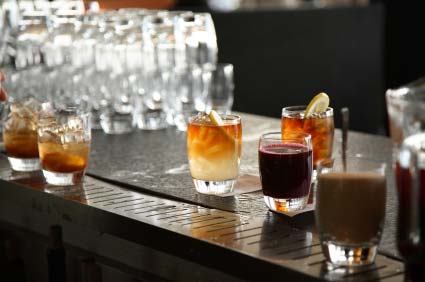Restaurants, bars and other retail businesses that serve or sell alcoholic beverages in the state of Texas are required to adhere to the regulations and guidelines set forth by the Texas Alcoholic Beverage Commission (TABC). These rules are intended to protect the welfare of customers and to ensure improved public safety for all residents. Companies that require a Texas liquor license to conduct their business operations must maintain compliance with all state regulations regarding the distribution and sale of alcohol to adults and to minors. Understanding the applicable rules and recommended best practices can ensure that dining and drinking establishments remain in compliance with these regulations and can obtain/retain their Texas alcoholic beverage license.
Responsible Practices
Texas bartenders and wait staff are required to maintain responsible practices and to exercise good judgment when serving alcohol to their customers:
- Serving alcoholic beverages to minors is strictly prohibited and can result in a one-year jail term, a $4,000 fine or both. When the age of the customer is in question, servers and bartenders are required to obtain positive verification that the individual is over 21 years of age before he or she is served alcoholic beverages. Training programs are available to help wait staff identify likely underage drinkers and to spot the signs of alcohol use in patrons of the drinking establishment. Promotional activities and campaigns should be carefully constructed to avoid targeting underage individuals.
- Marketing campaigns designed to promote overindulgence in alcoholic beverages may also be violations of TABC regulations. Specifically, campaigns that promote irresponsible drinking practices or that encourage drinking to the point of intoxication are prohibited. These include two-for-one promotions, coupons and incentives for purchasing alcohol but do not include reduced prices and discounts on single drinks or individual containers of alcoholic beverages. Texas law holds bars, taverns and other retail establishments responsible for alcohol consumption that occurs on their premises.
- Bartenders and servers are required to monitor the alcohol consumption of their customers and to take steps to cut off patrons who have overindulged or who may overindulge if allowed to continue drinking. Similarly, customers are limited to two or fewer drinks at any given time. Groups may be served pitchers, bottles or larger containers of alcoholic beverages to share. Servers must exercise care, however, to ensure that guests do not consume too much in these situations. Additionally, liquor served to customers in open containers cannot be saved for resale or given to customers to take home; it must instead be destroyed by the retail establishment.
- Retailers, servers and bartenders are subject to charges of criminal negligence if they knowingly serve alcoholic beverages to individuals who are classed as insane or as habitual drunkards. First offenses are classed as misdemeanors and are subject to fines of between $100 and $500 and jail time of one year or less. Repeated offenses can result in fines of up to $1,000 and as much as one year in jail.
- The display of lewd, immoral or indecent pictures on cards, calendars, posters and other printed materials is prohibited in establishments that currently hold or are applying for a Texas beer license.
- Falsifying a sworn application for a Texas liquor license is punishable by prison terms of two to 10 years.
The TABC offers a great deal of informational material for retail establishments interested in applying for licensing to serve alcoholic beverages in Texas. By familiarizing themselves with the regulations and provisions of Texas liquor laws, owners of these retail companies can significantly increase their chances of success in obtaining the necessary permits and licenses to carry out their business plans.
Restaurant managers, bar owners and retail outlets can often benefit by seeking the assistance of a professional and experienced firm in navigating the application process and obtaining a Texas alcoholic beverage license. By working with these experts, retailers can avoid unexpected obstacles and can achieve their goals more quickly and effectively in the current regulatory environment.

